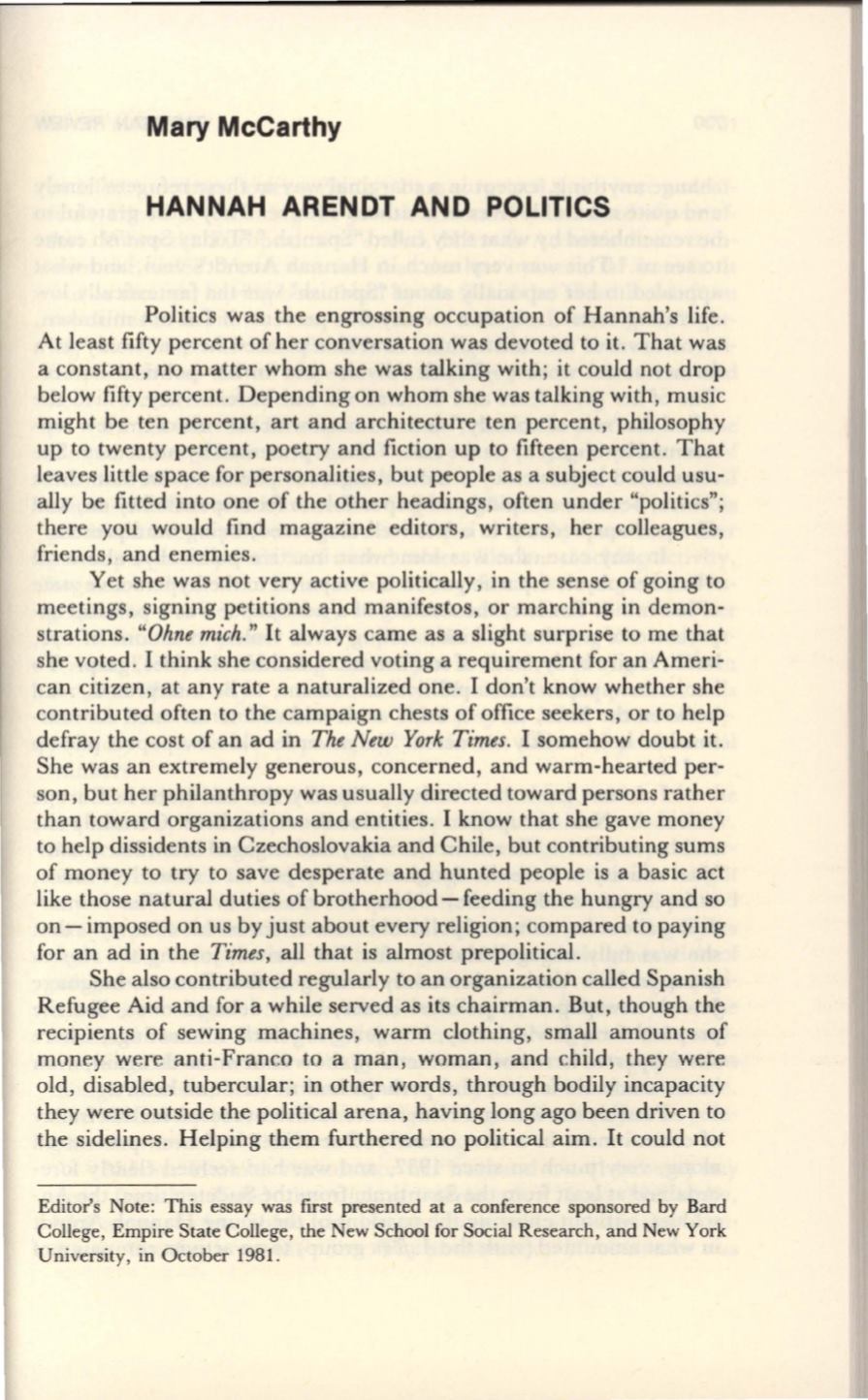
Mary McCarthy
HANNAH ARENDT AND POLITICS
Politics was the engrossing occupation of Hannah's life.
At least fifty percent of her conversation was devoted to it. That was
a constant, no matter whom she was talking with; it could not drop
below fifty percent. Depending on whom she was talking with, music
might be ten percent, art and architecture ten percent, philosophy
up to twenty percent, poetry and fiction up to fifteen percent. That
leaves little space for personalities, but people as a subject could usu–
ally be fitted into one of the other headings, often under "politics";
there you would find magazine editors, writers, her colleagues,
friends, and enemies.
Yet she was not very active politically, in the sense of going to
meetings, signing petitions and manifestos, or marching in demon–
strations .
"Ohne mich."
It
always came as a slight surprise to me that
she voted. I think she considered voting a requirement for an Ameri–
can citizen, at any rate a naturalized one. I don't know whether she
contributed often to the campaign chests of office seekers, or to help
defray the cost of an ad in
The New York Times.
I somehow doubt it.
She was an extremely generous, concerned, and warm-hearted per–
son, but her philanthropy was usually directed toward persons rather
than toward organizations and entities. I know that she gave money
to help dissidents in Czechoslovakia and Chile, but contributing sums
of money to try to save desperate and hunted people is a basic act
like those natural duties of brotherhood- feeding the hungry and so
on- imposed on us by just about every religion; compared to paying
for an ad in the
Times,
all that is almost prepolitical.
She also contributed regularly to an organization called Spanish
Refugee Aid and for a while served as its chairman. But, though the
recipients of sewing machines, warm clothing, small amounts of
money were anti-Franco to a man, woman, and child, they were
old, disabled, tubercular; in other words, through bodily incapacity
they were outside the political arena, having long ago been driven to
the sidelines. Helping them furthered no political aim. It could not
Editor's Note: This essay was first presented at a conference sponsored by Bard
College, Empire State College, the New School for Social Research, and New York
University, in October 1981 .


